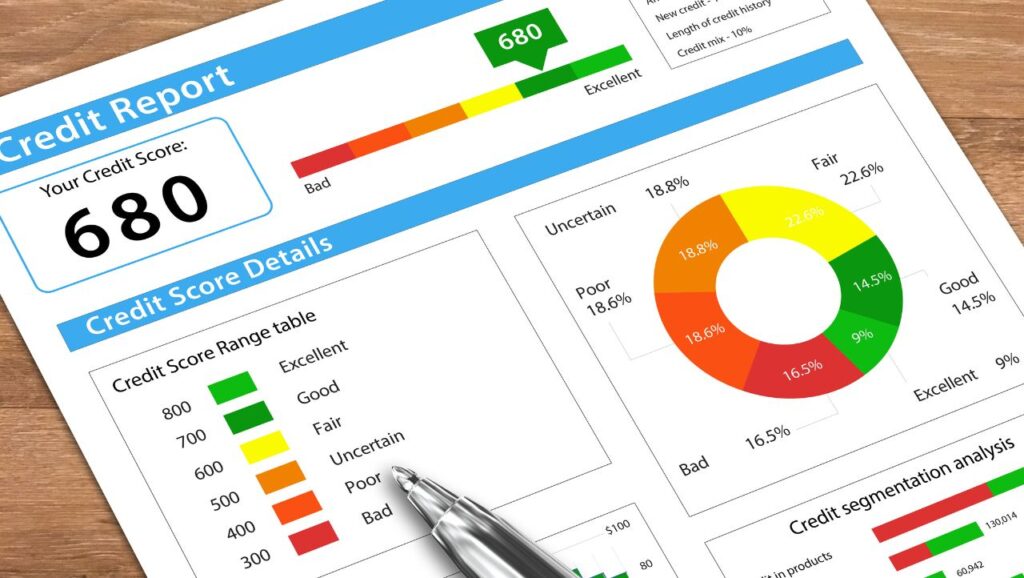Understanding Credit Scores: How They Impact Your Financial Health
Credit scores play a crucial role in your financial life, influencing everything from loan approvals to interest rates on your credit cards. Understanding how credit scores work and how they affect your financial health can help you make smarter financial decisions. At ECIGB Bank, we’re here to help you navigate the complexities of credit scores and provide you with the tools to improve and maintain a strong credit profile.
What is a Credit Score?
A credit score is a numerical representation of your creditworthiness, calculated based on your credit history. This score helps lenders assess the risk of lending you money. The most commonly used credit scoring model is the FICO score, which ranges from 300 to 850.
Components of a Credit Score:
- Payment History (35%): Timely payments on your credit accounts are crucial.
- Amounts Owed (30%): The total debt you owe compared to your available credit.
- Length of Credit History (15%): How long your credit accounts have been active.
- Credit Mix (10%): The variety of credit accounts (e.g., credit cards, mortgages, auto loans).
- New Credit (10%): Recent credit inquiries and new credit accounts.
How Credit Scores are Calculated
Credit scores are calculated using information from your credit report, which includes your payment history, amount of debt, length of credit history, types of credit in use, and recent credit activity. The three major credit bureaus—Equifax, Experian, and TransUnion—collect and maintain this information.
Impact of Credit Score Ranges:
- Excellent (800-850): Lower interest rates, better loan terms, and higher credit limits.
- Very Good (740-799): Competitive interest rates and favorable loan terms.
- Good (670-739): Average interest rates and standard loan terms.
- Fair (580-669): Higher interest rates and limited loan options.
- Poor (300-579): Difficulty obtaining credit and high-interest rates.
The Impact of Credit Scores on Financial Health
Your credit score affects various aspects of your financial life. Here’s how:
Loan Approvals:
Lenders use credit scores to determine whether to approve your loan applications. A higher credit score increases the likelihood of loan approval and access to better loan terms.
Interest Rates:
Credit scores directly influence the interest rates you receive on loans and credit cards. Higher scores typically lead to lower interest rates, reducing the overall cost of borrowing.
Insurance Premiums:
Insurance companies often use credit scores to determine premiums for auto and homeowners insurance. Better credit scores can lead to lower insurance premiums.
Employment Opportunities:
Some employers check credit scores as part of the hiring process, especially for positions that involve financial responsibilities. A higher credit score can improve your employment prospects.
Tips for Improving and Maintaining a Good Credit Score
Maintaining a good credit score requires consistent financial habits. Here are some tips to help you improve and maintain your credit score:
Pay Your Bills on Time:
Your payment history has the most significant impact on your credit score. Always pay your bills on time to avoid late payments, which can significantly lower your score.
Keep Credit Card Balances Low:
Aim to keep your credit card balances below 30% of your credit limit. High balances can negatively impact your credit utilization ratio and, consequently, your credit score.
Avoid Opening Too Many New Accounts:
Each time you apply for credit, a hard inquiry is made on your credit report, which can temporarily lower your score. Only apply for new credit when necessary.
Diversify Your Credit Mix:
Having a variety of credit types, such as installment loans and revolving credit, can positively affect your credit score. However, only take on debt that you can manage responsibly.
Regularly Check Your Credit Report:
Review your credit report annually to ensure there are no errors or inaccuracies that could affect your score. You can obtain a free credit report from each of the three major credit bureaus once a year.
How ECIGB Bank Can Help
At ECIGB Bank, we offer a range of products and services to help you build and maintain a strong credit profile. Our financial advisors are here to provide personalized advice and support.
ECIGB Bank Credit Products:
- Credit Cards: Our credit cards come with competitive interest rates and rewards programs.
- Personal Loans: Flexible loan options to meet your financial needs.
- Credit Builder Loans: Designed to help you build or rebuild your credit history.
Expert Advice:
Our financial advisors can help you understand your credit report, identify areas for improvement, and develop a personalized plan to enhance your credit score.
Conclusion
Understanding and managing your credit score is essential for achieving financial health. By following the tips outlined above and leveraging the resources available at ECIGB Bank, you can improve your credit score and unlock better financial opportunities. Contact us today to learn more about how we can help you on your journey to financial success.
Ready to take control of your credit score? Visit ECIGB Bank today to explore our credit products and services, and start building a stronger financial future.
- Phone: +44-7838-698905
- Email: [email protected]
- Visit Us: Find your nearest branch using our branch locator on the website.



